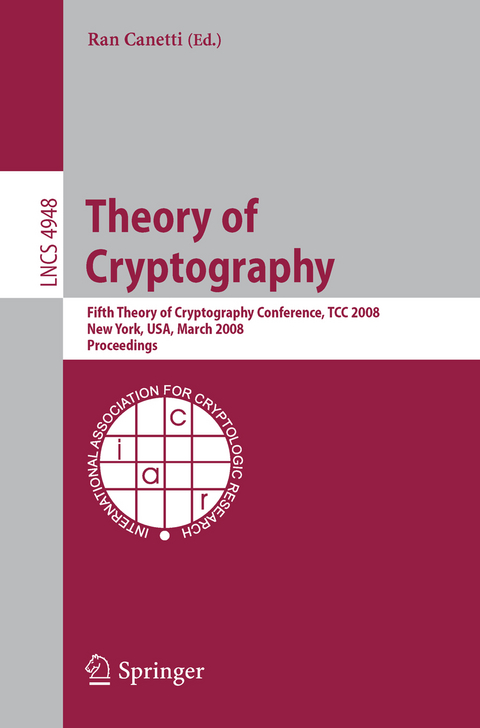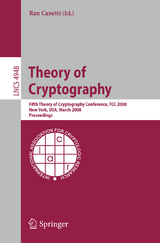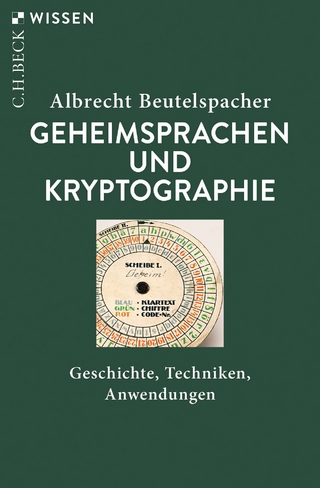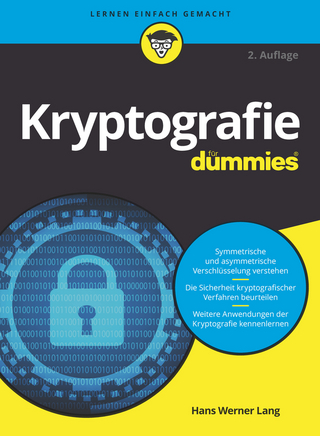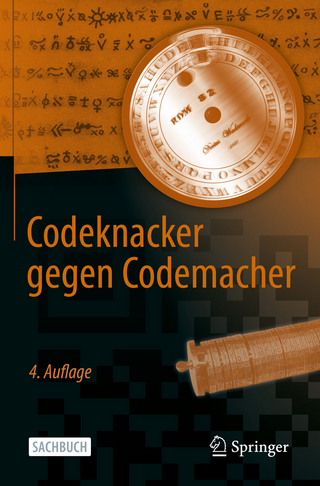Theory of Cryptography
Springer Berlin (Verlag)
978-3-540-78523-1 (ISBN)
TCC 2008, the 5th Theory of Cryptography Conference, was held in New York, New York, March 19 21, 2008, at New York University. TCC 2008 was sp- soredbytheInternationalAssociationforCryptologicResearch(IACR)andwas organizedincooperationwiththeDepartmentofComputerScienceatNewYork University and the Courant Institute for Mathematical Sciences. The General Chairs of the conference were Yevgeniy Dodis and Victor Shoup. The conference received 81 submissions, of which the Program Committee selected34forpresentationattheconference.Theauthorsoftwopapersthen- cidedto mergetheir papers,resulting in a totalof33 presentedpapers.The Best Student Paper Award was given to Paul Valiant for his paper Incrementally Veri?able Computation or Knowledge Implies Time/Space E?ciency. These proceedings consist of revised versions of the presented papers. The revisions were not reviewed. The authors bear full responsibility for the contents of their papers. The conference programalso included four special events: an invited talk - titled Randomness Extractors and Their Cryptographic Applications by Salil Vadhan; a tutorial entitled Bridging Cryptography and Game Theory: Recent Results and Future Directions, given by Jonathan Katz (with an accom- nying tutorial in the proceedings); a panel discussion on Game Theory and Cryptography: Towards a Joint Point of View? with Tal Rabin as moderator and Jonathan Katz, Silvio Micali, and Moni Naor as panelists; and a Rump Session chaired by Anna Lysyanskaya.
Technical Session 1.- Incrementally Verifiable Computation or Proofs of Knowledge Imply Time/Space Efficiency.- On Seed-Incompressible Functions.- Technical Session 2.- Asymptotically Efficient Lattice-Based Digital Signatures.- Basing Weak Public-Key Cryptography on Strong One-Way Functions.- Technical Session 3.- Which Languages Have 4-Round Zero-Knowledge Proofs?.- How to Achieve Perfect Simulation and A Complete Problem for Non-interactive Perfect Zero-Knowledge.- General Properties of Quantum Zero-Knowledge Proofs.- Technical Session 4.- The Layered Games Framework for Specifications and Analysis of Security Protocols.- Universally Composable Multi-party Computation with an Unreliable Common Reference String.- Efficient Protocols for Set Intersection and Pattern Matching with Security Against Malicious and Covert Adversaries.- Fast Private Norm Estimation and Heavy Hitters.- Technical Session 5.- Matroids Can Be Far from Ideal Secret Sharing.- Perfectly-Secure MPC with Linear Communication Complexity.- MPC vs. SFE: Perfect Security in a Unified Corruption Model.- Invited Talk.- Bridging Game Theory and Cryptography: Recent Results and Future Directions.- Technical Session 6.- Verifiably Secure Devices.- Lower Bounds on Implementing Robust and Resilient Mediators.- Cryptography and Game Theory: Designing Protocols for Exchanging Information.- Technical Session 7.- Equivocal Blind Signatures and Adaptive UC-Security.- P-signatures and Noninteractive Anonymous Credentials.- Technical Session 8.- Multi-property Preserving Combiners for Hash Functions.- OT-Combiners via Secure Computation.- Semi-honest to Malicious Oblivious Transfer-The Black-Box Way.- Black-Box Construction of a Non-malleable Encryption Scheme from Any Semantically Secure One.- Technical Session 9.-A Linear Lower Bound on the Communication Complexity of Single-Server Private Information Retrieval.- Randomness Extraction Via ?-Biased Masking in the Presence of a Quantum Attacker.- Technical Session 10.- An Equivalence Between Zero Knowledge and Commitments.- Interactive and Noninteractive Zero Knowledge are Equivalent in the Help Model.- Technical Session 11.- The Round-Complexity of Black-Box Zero-Knowledge: A Combinatorial Characterization.- On Constant-Round Concurrent Zero-Knowledge.- Technical Session 12.- Concurrent Non-malleable Commitments from Any One-Way Function.- Faster and Shorter Password-Authenticated Key Exchange.- Technical Session 13.- Saving Private Randomness in One-Way Functions and Pseudorandom Generators.- Degradation and Amplification of Computational Hardness.
| Erscheint lt. Verlag | 26.2.2008 |
|---|---|
| Reihe/Serie | Lecture Notes in Computer Science | Security and Cryptology |
| Zusatzinfo | XII, 645 p. |
| Verlagsort | Berlin |
| Sprache | englisch |
| Maße | 155 x 235 mm |
| Gewicht | 989 g |
| Themenwelt | Informatik ► Theorie / Studium ► Kryptologie |
| Schlagworte | Algorithm analysis and problem complexity • authentication • Communication • Complexity • Cryptanalysis • cryptographic paradigms • cryptographic primitives • cryptographic protocols • cryptography • Cryptology • DES • digital signature schemes • Encryption • Game Theory • Hardcover, Softcover / Informatik, EDV/Informatik • HC/Informatik, EDV/Informatik • Information • interactive hashing • Lower Bounds • multicast encryption • Multi-Party Computation • obfuscation • oblivious transfer • privacy • private information retrieval • pseudo-random functions • public key encryption • Secret Sharing • secure computation • security • SIGNATUR • Zero Knowledge |
| ISBN-10 | 3-540-78523-X / 354078523X |
| ISBN-13 | 978-3-540-78523-1 / 9783540785231 |
| Zustand | Neuware |
| Haben Sie eine Frage zum Produkt? |
aus dem Bereich
